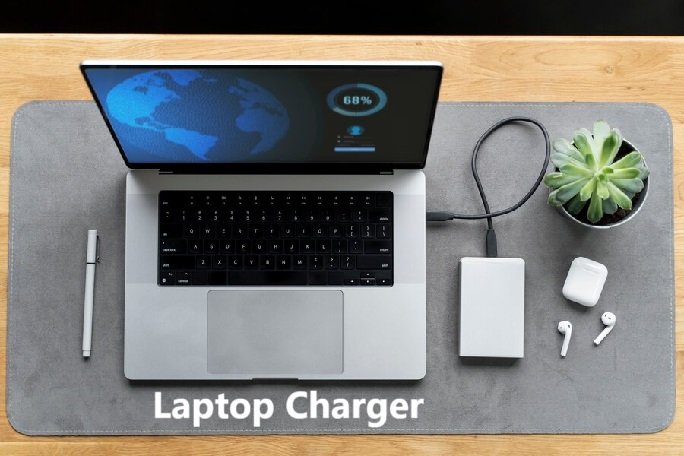Ultimate Guide to Laptop Chargers: Types, Compatibility, and Tips for Buying
Laptop chargers are essential for keeping your device powered and running. However, not all chargers are created equal. Finding the right laptop charger that is compatible with your device is crucial to prevent damage and ensure efficient charging. In this comprehensive guide, we’ll cover everything you need to know about laptop chargers, including types, compatibility tips, and advice on how to maintain your charger for optimal performance.
1. Understanding Laptop Charger Basics
A laptop charger, also known as a power adapter, converts alternating current (AC) from a wall outlet to direct current (DC) to charge your laptop battery. It typically includes an AC plug, a power brick, and a DC plug that connects to your laptop.
Key Components of a Laptop Charger
- AC Plug: Connects to the wall outlet.
- Power Brick: Converts AC to DC, adjusting voltage and amperage.
- DC Plug: Connects to your laptop’s charging port.
2. Types of Laptop Chargers
Laptop chargers vary based on factors such as brand, voltage, and connector type. Here’s a breakdown of the different types:
| Charger Type | Description | Common Devices |
|---|---|---|
| OEM Chargers | Original chargers from the laptop manufacturer, offering the best compatibility and performance. | Dell, HP, Lenovo, etc. |
| Universal Chargers | Adjustable chargers compatible with multiple brands and devices, often with various connector tips. | Multi-device compatibility |
| USB-C Chargers | Newer chargers using USB-C ports; compatible with many modern laptops and other devices. | MacBook, Dell XPS, Surface Laptop |
| Power Bank Chargers | Portable power banks designed to charge laptops, ideal for travel or remote work. | Various laptop brands |
Advantages of Using OEM vs. Universal Chargers
- OEM (Original Equipment Manufacturer) chargers provide the highest compatibility and reduce the risk of damaging your device.
- Universal chargers are more versatile but may not offer the same level of performance for all devices.
3. How to Choose the Right Laptop Charger
Choosing the right charger for your laptop is essential to ensure safe and effective charging. Here are key factors to consider:
Voltage and Amperage
The voltage (V) and amperage (A) specifications should match your laptop’s requirements. Using a charger with incompatible specifications can damage your battery and internal components.
Connector Type
Check the charger plug type and ensure it fits your laptop. Different brands use distinct plug designs, so it’s crucial to select one that matches your model.
Cable Length
Consider the length of the charger cable. A longer cable provides more flexibility, especially if your workspace has limited outlets.
4. Laptop Charger Compatibility Guide

One of the most crucial aspects of finding a laptop charger is ensuring it’s compatible with your device. Here’s a quick reference for checking compatibility:
| Factor | What to Look For |
|---|---|
| Voltage | Match the voltage of the charger to your laptop’s specification. |
| Amperage | The amperage of the charger should be equal to or greater than your laptop’s requirement. |
| Connector Type | Confirm the connector type and size. |
| Brand Compatibility | OEM chargers from your laptop’s brand are most reliable. |
5. Laptop Charger Buying Tips
When purchasing a new laptop charger, consider the following tips to make an informed decision:
- Check Warranty and Return Policy: Always buy chargers with a warranty to protect against defects or compatibility issues.
- Avoid Cheap Knock-offs: Low-quality chargers may not meet safety standards, increasing the risk of damage to your device.
- Purchase from Reputable Sellers: Buy from trusted stores or the laptop manufacturer to ensure product quality and compatibility.
- Read Reviews: Reviews can provide insights into the reliability and performance of a specific charger model.
6. How to Care for Your Laptop Charger
Proper maintenance can prolong the lifespan of your laptop charger and help avoid common issues such as frayed cords or overheating. Here are some tips to keep your charger in good condition:
Avoid Overheating
Do not place your charger in direct sunlight or in enclosed spaces where heat can accumulate. Excessive heat can reduce the charger’s efficiency and lifespan.
Protect the Cable
Avoid bending or twisting the cable near the connectors, as these areas are prone to wear and tear. Consider using a cable organizer to prevent tangling.
Unplug When Not in Use
Unplugging your charger when it’s not in use can help reduce energy consumption and prolong the lifespan of your charger and battery.
7. Laptop Charger FAQs
Q1: Can I use a different brand’s charger for my laptop?
Yes, but only if the voltage, amperage, and connector type match. However, using an OEM charger is the safest option.
Q2: Why does my laptop charger get hot?
Laptop chargers can warm up during use, especially when charging larger batteries. However, if it becomes extremely hot, this could indicate an issue with the charger or the power source.
Q3: Can I charge my laptop with a power bank?
Yes, many power banks are designed to charge laptops. Ensure the power bank has sufficient capacity and matches the voltage requirements of your laptop.
Q4: How can I check if my laptop charger is genuine?
Look for brand logos, serial numbers, and safety certifications. OEM chargers often come with packaging and warranty details that third-party chargers lack.
Q5: What happens if I use a charger with a higher amperage?
Using a charger with a higher amperage is generally safe; the laptop will only draw the amperage it needs. However, do not use a charger with a higher voltage, as this could damage your device.
Conclusion
Choosing the right laptop charger is critical for your device’s safety, battery life, and overall performance. By understanding the different types of chargers, compatibility factors, and maintenance tips, you can ensure your laptop stays powered effectively. Always consider the original equipment (OEM) option for the best results, and remember that regular care and proper usage can extend your charger’s life.
Read More:


